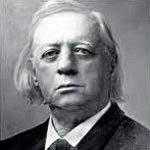Quotes about Motives
God made man to go by motives, and he will not go without them, any more than a boat without steam or a balloon without gas.
God searches the heart and understands every motive. To be acceptable to Him, our motives must spring from a love for Him and a desire to glorify Him. Obedience to God performed from a legalistic motive – that is a fear of the consequences or to gain favor with God – is not pleasing to God.
Transforming Grace, NavPress, 1991, p. 78-79. Used by permission of NavPress – www.navpress.com. All rights reserved. Get this book!
While you may in charity assume that a Christian brother acts from pure motives, you dare not assume that your own heart is upright. You must be more charitable to others than you are to yourself. You have no access to a fellow Christian’s heart. No ability to test his inward devotion to the Lord, which is the all-important matter in using things indifferent. But you can scrutinize your own heart. You can examine your inner man to detect your own motives and aims for every act.
The Shadow of the Cross – Studies in Self-Denial, 1981, p. 41, by permission Banner of Truth, Carlisle, PA.
The motive for an action determines the virtuousness of it, not the action itself.
A motive is an emotion, desire, a felt need, or an impulse of some kind that impels a person to action or to certain pursuits. Thus, motives are crucial to everything a Christian does. They not only have temporal repercussions, but God’s promises of future and eternal rewards are related to both faithfulness on the job and to motives. Proverbs tells us, “All the ways of a man are clean in his own sight, But the Lord weighs the motives” (Prov. 16:2). Thus, motives are vital to whatever we do. To the Corinthians he wrote, “For our reason for confidence is this: the testimony of our conscience, that with pure motives and godly sincerity, not by human wisdom but by the grace of God, we conducted ourselves in the world, and all the more toward you” (2 Cor. 1:12). Then in 1 Corinthians he wrote, “So then, do not judge anything before the time. Wait until the Lord comes. He will bring to light the hidden things of darkness and reveal the motives of hearts. Then each will receive recognition from God” (1 Cor. 4:5).
Faithfulness, http://bible.org/seriespage/mark-14-faithfulness,Copyright ©1996-2005, All rights reserved.
Scripture never separates motive and behavior. The mirror of Scripture exposes both. The lamp of Scripture guides both. The grace and power of Jesus Christ change both root and fruit.
Seeing With New Eyes, P&R Publishers, 2003, p. 141. Get this book!
What is motivating you or another?
1. What do you love? Hate (Matt. 22:37-39; 2 Tim. 3:2-4)?
2. What do you want, desire, crave, lust, and wish for? What desires do you serve and obey (Psm. 17:14-15; Pro. 10:3; 11:6-7; 1 Pet. 1:14; 2:11; 4:2; 2 Pet. 1:4; 2:10; Jas. 1:14-15; 4:1-3)?
3. What do you seek, aim for, and pursue? What are your goals and expectations (Mt. 6:32-33; 2 Tim. 2:22)?
4. Where do you bank your hopes (1 Pet. 1:13; 1 Tim. 6:17)?
5. What do you fear? What do you want? What do you tend to worry about (Mt. 6:25-32; 13:22)?
6. What do you feel like doing (Psm. 17:14-15; 73:23-28; Pro. 10:3; 10:28; 11:6-7)?
7. What do you think you need? What are your “felt needs” (Mt. 6:8-15; 6:25-31; 1 Ki. 3:5-14)?
8. What are you plans, agendas, strategies, and intentions designed to accomplish (Matt. 6:32-33; 2 Tim. 2:22)?
9. What makes you tick (Isa. 1:29-30; 50:10-11; Jer. 2:13; 17:13; Matt. 4:4; 5:6; Jn. 4:32-34; 6:25-69)?
10. Where do you find refuge, safety, comfort, escape, pleasure, security (Psm. 23; 27; 31; 46)?
11. What or whom do you trust (Psm. 23; 103; 131; Pr. 3:5; 11:28; 12:15)?
12. Whose performance matters? On whose shoulders does the well-being of your world rest (Psm. 49:13; Jer. 17:1-14; Phil. 1:6; 2:13; 3:3-11; 4:13)?
13. Whom must you please? Whose opinion of you counts (Pr. 1:7; 9:10; 29:25; Jn. 12:43; 2 Cor. 10:18)?
14. Who are your role models (Rom. 8:29; Eph. 4:24; Col. 3:10)?
15. On your deathbed, what would sum up your life as worthwhile (see all of Ecclesiastes)?
16. How do you define and weigh success or failure, right or wrong, desirable or undesirable, in any particular situation (Jud. 21:25; Pro. 3:5; 1 Cor. 10:24-27?
17. What would make you feel rich, secure, prosperous (Pr. 3:13-18; 8:10, 17-21; Matt. 6:19-21; 13:45-46; 1 Pet. 1:2-7)?
18. What would bring you the greatest pleasure, happiness, and delight? The greatest pain and misery (Matt. 5:3-11; Psm. 1; 35; Jer. 17:7-8; Lk. 6:27-42)?
19. Whose coming into political power would make everything better (Matt. 6:10)?
20. Whose victory or success would make your life happy? How do you define victory or success (Rom. 8:37-39; Rev. 2:7; Psm. 96-99)?
21. What do you see as your rights? What do you feel entitled to (1 Cor. 9; Rom. 5:6-10; Psm. 103:10)?
22. In what situations do you feel pressured or tense? Confident and relaxed (see the Psalms or refuge)?
23. What do you want to get out of life (Prov. 3:13-18; Matt. 6:1-5, 16-18)?
24. What do you pray for (Jas. 4:3; Matt. 6:5-1; Lk. 18:9-14)?
25. What do you think about most often? What preoccupies or obsesses you (Col. 3:1-5; Phil. 3:19; Rom. 8:5-16)?
26. What do you talk about? What is important to you? What attitudes do you communicate (Lk. 6:45; Pro. 10:10; Eph. 4:29)?
27. How do you spend your time? What are your priorities (Pro. 1:16; 10:4; 23:19-21; 24:33)?
28. What are you characteristic fantasies, either pleasurable or fearful? Daydreams? What do your night dreams revolve around (Psm. 17:14-15; 73:23-28; Ecc. 5:3-7; Gal. 5:16-25; Eph. 2:3; 4:22; 2 Tim. 2:22; Tit. 3:3).
29. What are your functional beliefs that control how you interpret your life and determine how you act (Heb. 4:12)?
30. What are your idols or false gods? In what do you place your trust? Or set your hopes (Jer. 17:5; Eze. 14:1-8; Ac. 26:18; Col. 3:5; 1 Jn. 5:21).
31. How do you live for yourself (Lk. 9:23-25; 2 Cor. 5:14-15)?
32. How do you life as a slave of the devil (Jn. 8:44; Ac. 26:18; Eph. 2:2-3:2; 1 Tim. 2:26; Jas. 3:14-16)?
33. How do you implicitly say, “If only…” (to get what you want, avoid what you don’t want, keep what you have) (1 Ki. 21:1-7; Heb. 11:25; Phil. 3:4-11)?
34. What instinctively seems and feels right to you? What are you opinions, the things you feel are true (Jud. 21:25; Pro. 3:5, 7; 12:15; 14:12; 18:2; Isa. 53:6; Phil. 3:19; Rom. 16:18)?
35. Where do you find your identity? How do you define who you are?
Excerpted from: Seeing With New Eyes, P&R Publishers, 2003, p. 132-140. Get this book!
You are not acting as you ought to do when you are moved by any other motive than a single eye to your Lord’s glory.
Always has the Holy One of Israel estimated men by their inner nature, and not by their outward professions; to Him the inward is as visible as the outward, and He rightly judges that the essential character of an action lies in the motive of him who works it.







